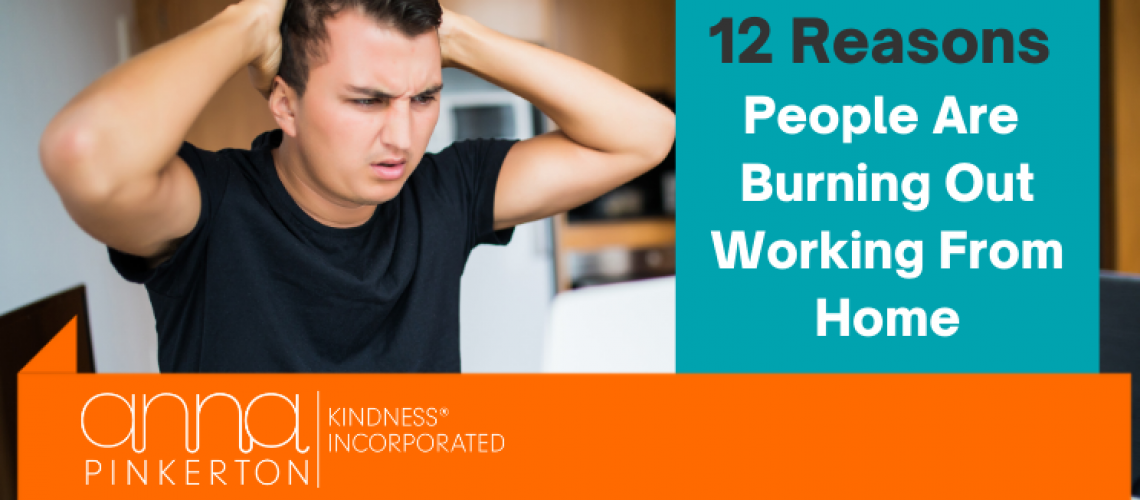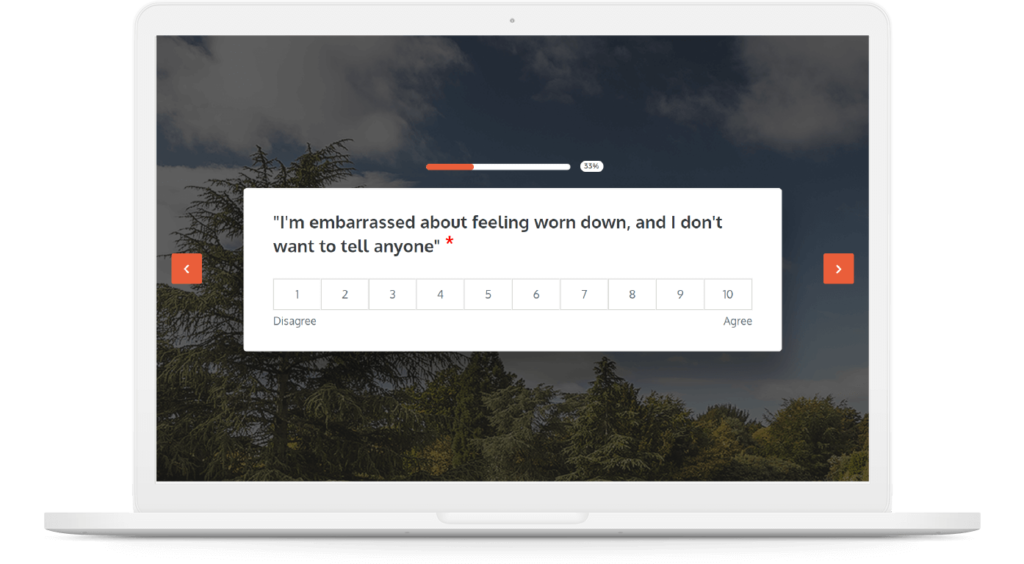Some people are astonished that people are breaking down whilst working at home, I am not, and here are some of the reasons why:
1) Travel hours have been given to the job.
It is entirely somebody’s choice if they want to give their travel time to the organisation/business they’re working for. In fact, every now and then that’s absolutely fine, but before you know it, you’re doing an extra 10 hours a week that’s 40 hours extra month – which is basically another working week!
This has been great and necessary in the initial adjustments needed to manage the Covid19 challenges.
If people enjoy this and can stay well while working the extra hours, that’s their choice. Although when it starts to overwhelm and makes someone ill it feels hard to choose to reverse the cycle. Some will feel unable to adjust down their hours, especially if many have done the same; it becomes the new norm. A bit like if you start a job and you do extra hours to show your value and contribution and then it feels almost impossible to reduce them afterward…
2) No decompression time
Having lost travel time, you lose de-stressing time. It is harder to put in place the boundaries between work and home. Not so much in a ‘work-life balance’ but where without any travel to and from work, there is no time to decompress before your home life starts. This means the intensity of work, meetings, discussions general stress starts to ‘bleed’ into home life and other people within the home. This also means that accidentally the stress starts to affect the whole household. It also means that home has lost its ‘soft place to fall’ feel.
3) Schooling at home.
Of course for many there has also been the added pressure of having young children (and older ones) at home and routines being different. People need routines in different ways and children often like the structure that has been altered too. You may feel having your children around at whatever age feels like something you didn’t sign up for, and it can make you feel torn to pieces trying to do the right thing for everyone, and your work. The multi-tasking can wear you out not simply through so many jobs, but the weight of the responsibility.
4) Feel like you’re not doing anything well
With so many changes, so much uncertainty and all the new challenges, people often feel like they’re not doing anything well. If home is difficult then going to work and being able to settle into tasks and contribute feels an effective antidote, a respite. Vice versa can also work for you, but when neither is at its optimum you can’t easily find solace anywhere! Like most things managing this for a short while is well manageable. When people can’t see an end to it, they get worn out, worn down, depressed and anxious.
Continued juggling of many responsibilities has lost its novelty. Burnout will be much more prevalent in Q1 and Q2 in 2021. It’s crucial to look out for yourself, loved ones and colleagues.
5) Meeting yourself for the first time
People are often meeting themselves for the first time. I know that may seem odd! Many people do not and wish not to reflect on themselves or their lives; their prerogative.
Then a pandemic creates time to reflect, and for some it isn’t welcome.
There is lots of time to see yourself, who you are and who you’re not. The pandemic has given time to reflect on ourselves and the lives we have chosen (and the lives we haven’t chosen). For some this has been an amazing opportunity to explore themselves and their lives, and their futures. For others it has created considerable internal trauma often unveiling parts of self that busy lives distracted from.
6) Lack of obvious appreciation.
How we are reflected back by others is a very important part of being human, it helps us to recognise who we are; what to feel good about. In the absence of time within the workplace, people have to rely on themselves (as above). It has created angst and a feeling of struggling to see one’s worth, value, and contribution. Exchanges in the workplace however small had big significance. A nod, sharing a break, a bit of banter helps you feel human, acknowledged and appreciated. Lack of appreciation is a major component of burnout. Working hard for no acknowledgment wears people down more quickly.
This is often exacerbated when we do not have companionable and kindly relationships with ourselves. If we dig deep to recognise our own achievements we are often more critical and do not have the balance of someone else’s view to ameliorate the inner bully at large.
7) Availability means Visibility.
The long back to back virtual meetings have become the new way of being. Being available means to be visible, literally showing that you’re showing up.
It is not unusual for people to be at their screens for 8 to 12 hours a day. To be visible means it gives you the chance to be seen to be appreciated and to contribute. It’s not that you need to necessarily be upheld by others, it’s just the natural inclination. Whilst we are not having the nod across the office or having a coffee break with someone or taking lunch, there is a propensity to be feeling like you’re needing to be needed in meetings consistently. This is creating a particular type of fatigue we are not used to.
8) Connection with others
Most people need some social connection with others even if you only need a little amount. For many, the interaction at work is enough, but now even that is missing. People living alone are finding the isolation too much. The connections at work, however fleeting mean a great deal. Naturally shy and introverted people will struggle to reach out for virtual support; it is not comfortable for them. Those extroverts who are missing connection will find it way easier to shout when they feel low or need to chat.
Struggling alone can create despair. Despair and isolation can break people down. Some companies are doing wonderful things to reach out to all employees.
9) Aloneness is becoming loneliness
Following on from reason eight I think what we are seeing now is that people are tiring of the aloneness. For some people who were tired this time last year, they perhaps enjoyed the first lockdown as it gave them some recovery time they were going at a pace that was hard to sustain. For all kinds of reasons people would have been exhausted and the reduction in commute, socialising etc was welcome. What I’m hearing now is that the alone time people relished is becoming loneliness, and it’s becoming unpleasant. I think it’s partly because we haven’t got the antidote to our working days. In some ways we haven’t got the antidote to ourselves – we’ve not got the distraction from ourselves and our thoughts so that can be a huge struggle.
10) Self-efficacy/self agency
As I was saying before, the novelty of the restrictions is wearing off. For some it is because they are aware they cannot determine what they do in their lives; perhaps in a way that they didn’t even notice they did before.
When the parameters of activity are written for us to some extent one can feel rather out of control and the lack of self-agency is put into sharp focus. Particularly in a world where doing is applauded more than being I think that there is a real struggle for many. Of course, our spontaneity is stifled (or rather what you can do with your spontaneity is limited) to some degree in that we can’t choose entirely what we want to do next. Some find this rather suffocating and some have found gratitude in the freedoms they still have compared to others.
Of course, this is perhaps most acutely felt when we haven’t been able to see friends and family and feel like those relationships are suffering or lost even.
Lack of choice is often interpreted as lack of freedom, which is why humans often feel entrapped when choices are taken away.
11) Stress is becoming traumatic stress
The consistent restrictions and challenges in health and well-being on so many levels is wearing people down. For many the financial pressures, uncertainty and lost loved projects is unbearable. Without our lifestyle choices which help ameliorate these challenges, the system sees only the stressors.
Shared workplaces within the home will be soon approaching a year of uncertainty. For some uncertainty can be a huge challenge in itself. Chronic stress, in other words prolonged periods of stress, can tip over to traumatic stress simply because there is no respite from them. The brain interprets this continued stress as a threat and switches on the brain to hyper alert, and causes a myriad of symptoms.
12) Workload
The simple and undeniable biggest risk to good health and burnout is an overwhelming workload. A workload that consistently pushes someone beyond their limits, without respite, will create burnout or the person will move on.
The overwhelming workload is worsened by any sense of entrapment. The Covid19 pandemic has brought much uncertainty around work security. People see that companies and stores are closing, and feel they cannot move jobs in such uncertain times. They can then feel they have to accept a workload that is breaking them. This is Europe wide, and whilst the antidote of socialising, hobbies, travel, entertainment are not available to all; burnout will happen whilst working at home. Of course said, and unsaid, cultural norms within a workplace can be part of overwhelm and entrapment too. Often an increased workload is a silent expectation that insidiously creeps up on the group. The reality is such that Covid19 has brought unimaginable challenge to many, and many are doing what they need to in order to rise to that challenge. Sadly some will burnout.
I think it’s fair to say that you will see that these 12 things are not exhaustive. They are not happening in isolation of each other either, and one affects another and compounds another.
Burnout is a serious condition that can take months and years to recover from. It is not inevitable. There are many ways to support yourself, and your employees in its prevention.
In my next article I will be looking at what we can do to help ourselves and others stay well, when it can feel there is no way to.







